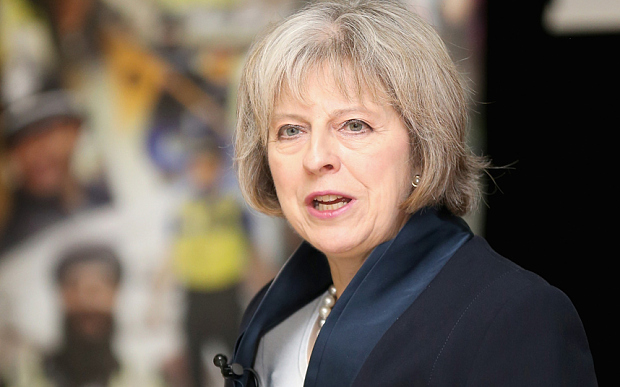UK police can get access to the history of sites visited by citizens without a warrant.

Theresa May, Home Secretary of the United Kingdom
The UK stood waiting: next Wednesday, Theresa May [Theresa May] will announce new police powers concerning the activities of Internet users. It is expected that providers will be obliged not only to keep the history of visiting sites over the past 12 months, but also to provide this information on demand and without a court order. This bill is part of a new plan for government surveillance of citizens, which Teresa May will present in the House of Commons.
The government wants the police and other state security agencies to rummage through users' history, look at specific addresses of visited pages, get access to search history, lists of sent emails and phone calls.
Mrs. May has repeatedly stated the need to provide the law enforcement agency with more opportunities and freedom of action. “I have already said many times that it is impossible to argue about the balance between privacy and security, that the lawfulness and illegality of surveillance and supervision [of citizens' agencies], without taking into account the threats to our country. These threats not only remain significant, but are constantly evolving. And this is not only international and local terrorism, but also industrial, military and state espionage. ”
')
It is planned that Internet providers and Internet services will be provided with monetary compensation for the need to keep detailed logs and ensure access to them by government search engines. A survey of the British company YouGov, engaged in the study of public opinion, showed that three-quarters of British respondents do not believe that such data can be protected from unauthorized access.
How digging in the history of the browser of citizens will help the police and agencies to identify international terrorists and spies, Mrs. May did not specify. A previous attempt to carry out a similar bill, then called the “Sponsorship Charter”, was blocked by the Liberal Democrats in 2013. Former Deputy Prime Minister Nick Clegg was wary that the creation of such a database of Internet usage and telephone history would create a “disturbing international precedent”.
If such a law is adopted, it is not yet known what measures law enforcement agencies will take in connection with the existence of such services as VPN, Tor and other similar means to protect against wiretapping, including the upcoming total web transition to the HTTPS protocol .
Source: https://habr.com/ru/post/356898/
All Articles